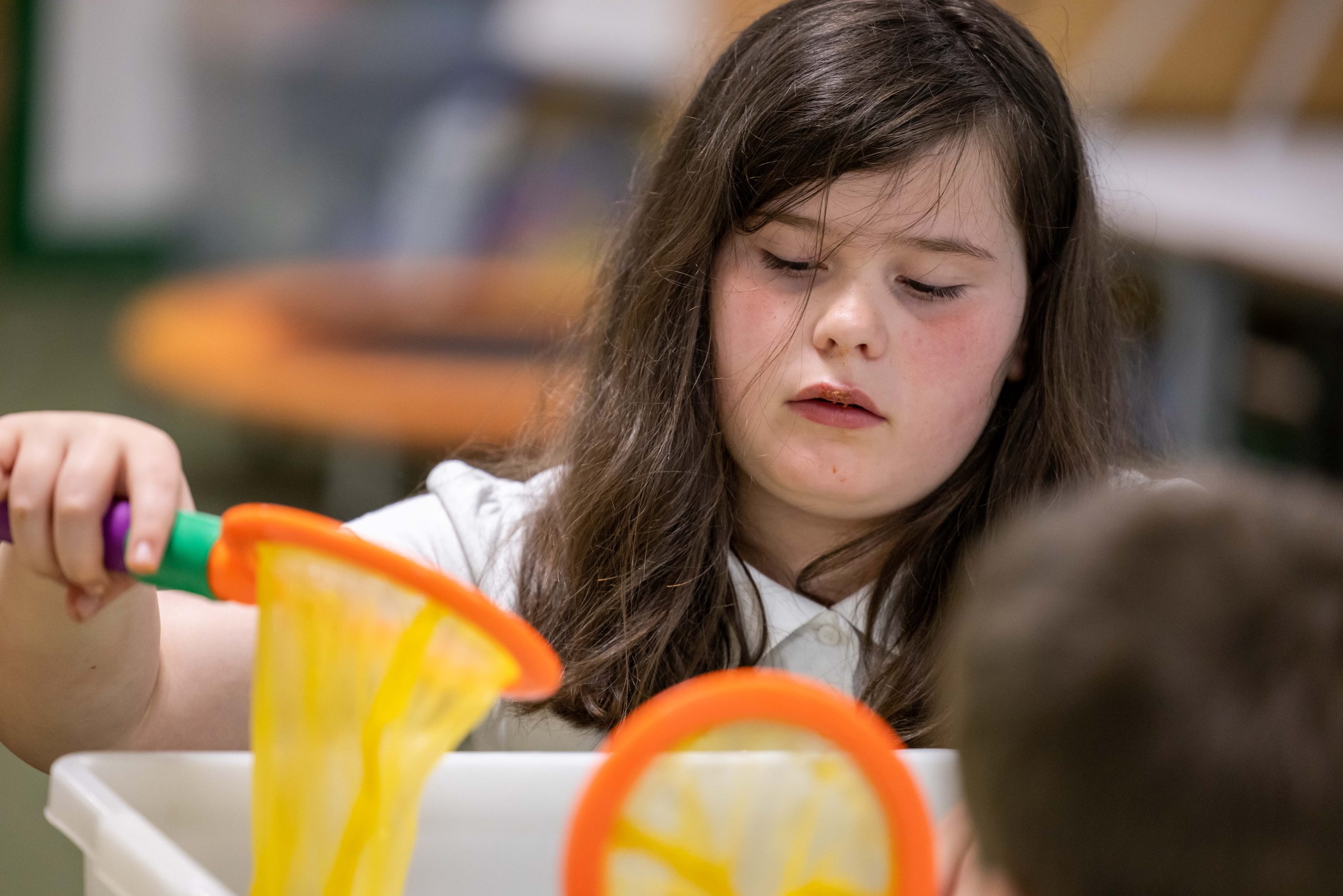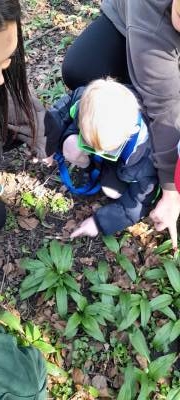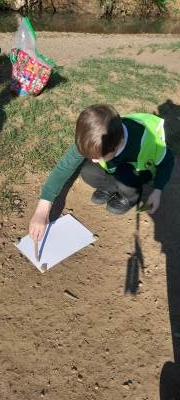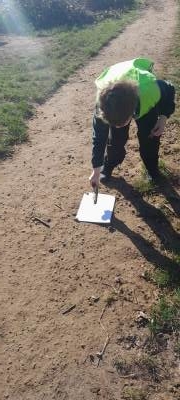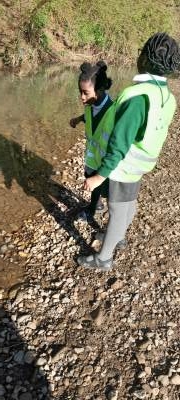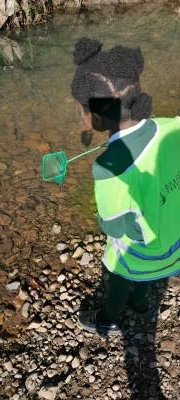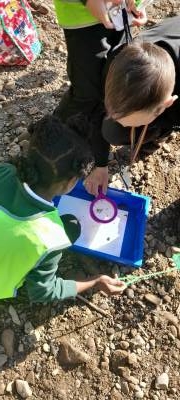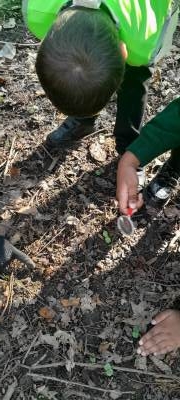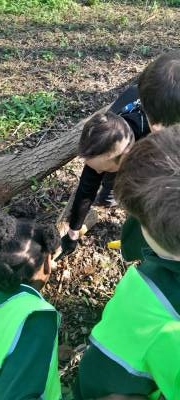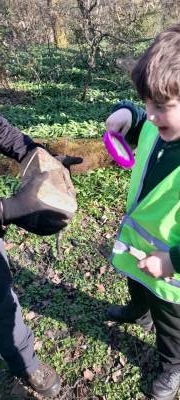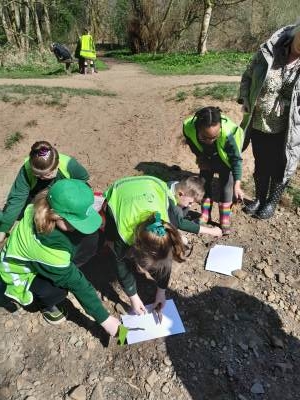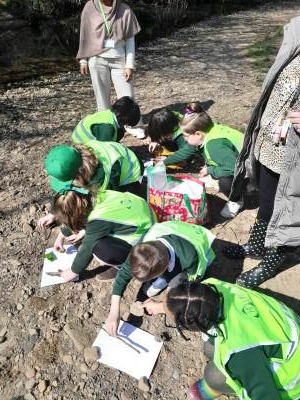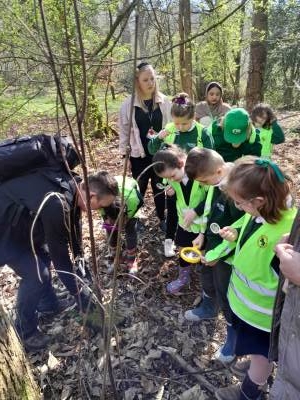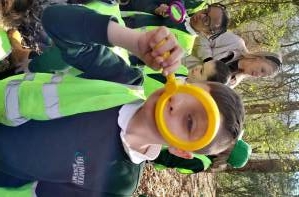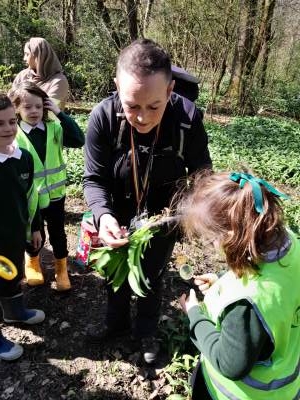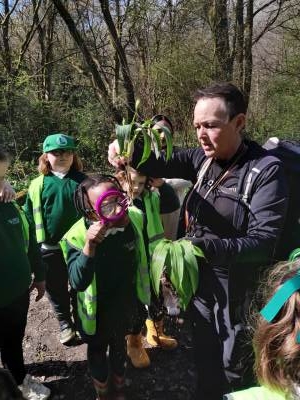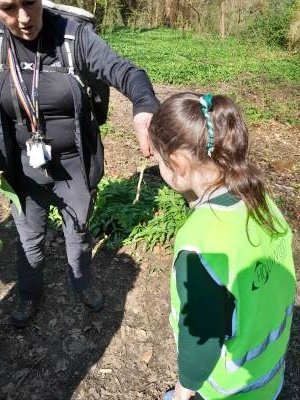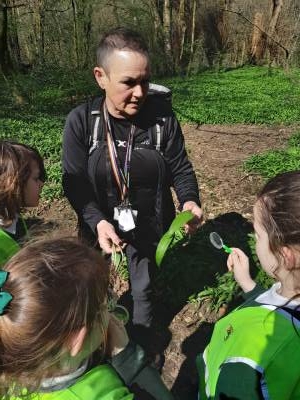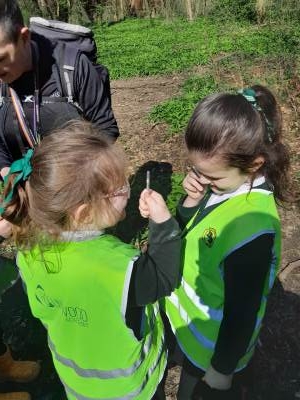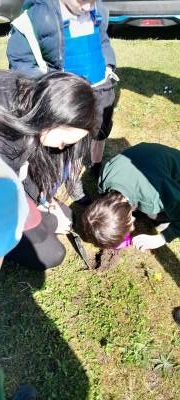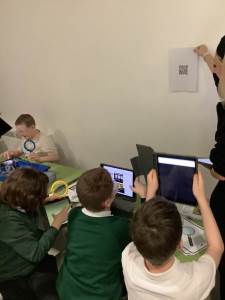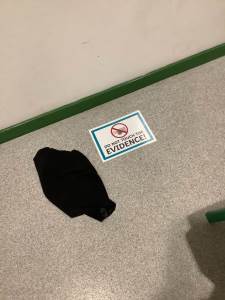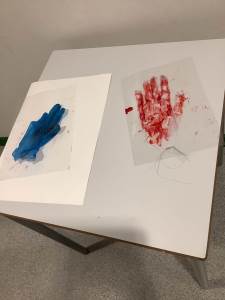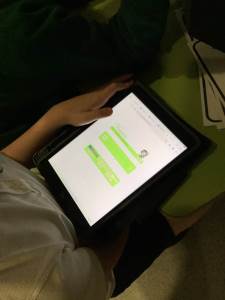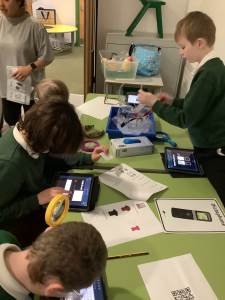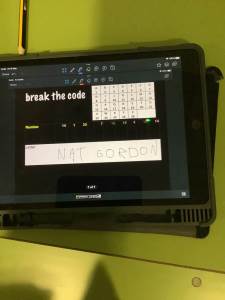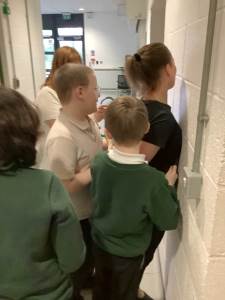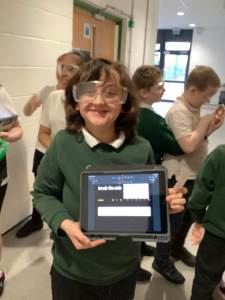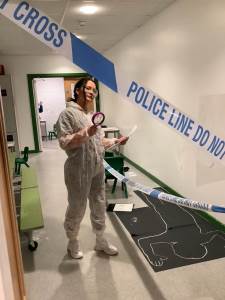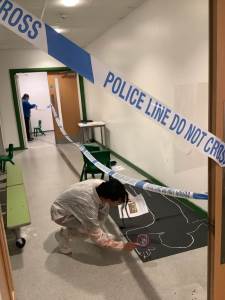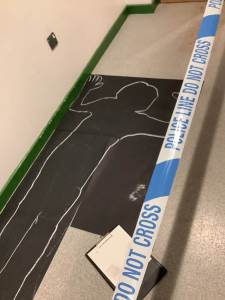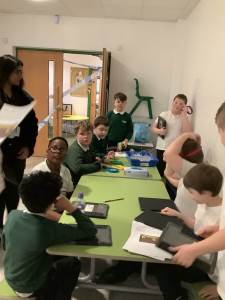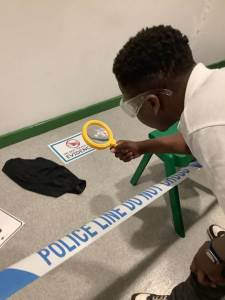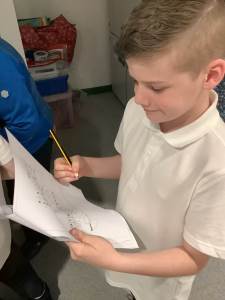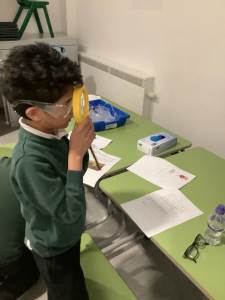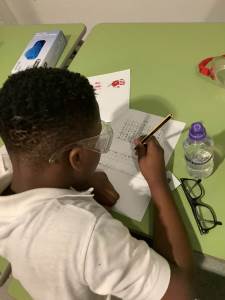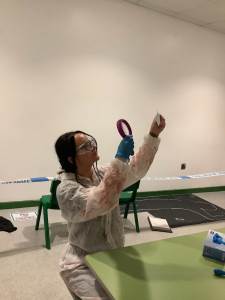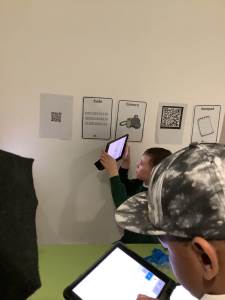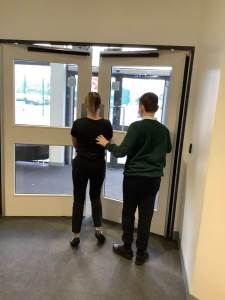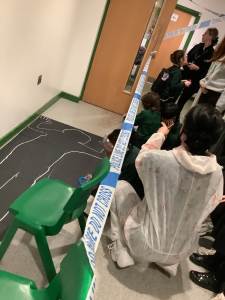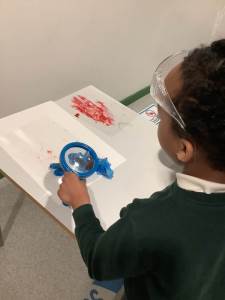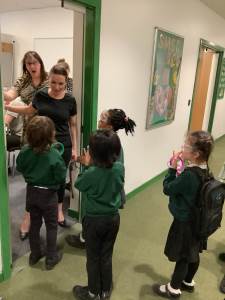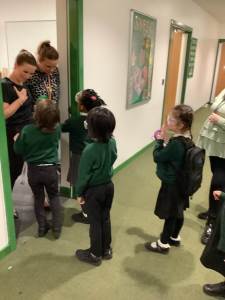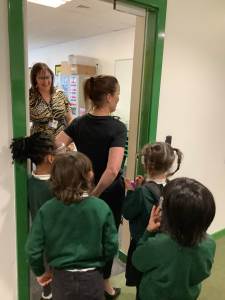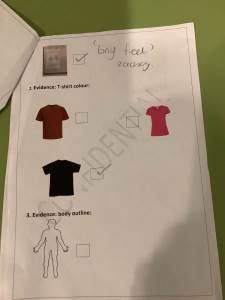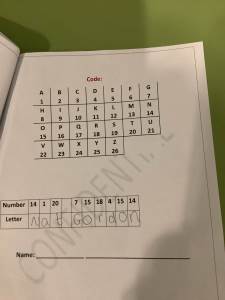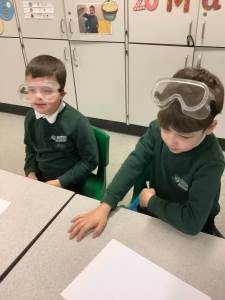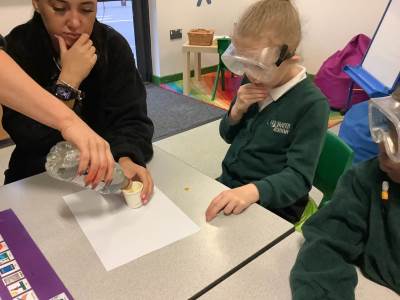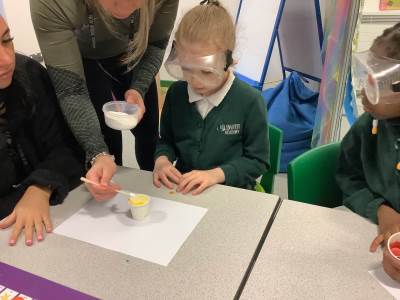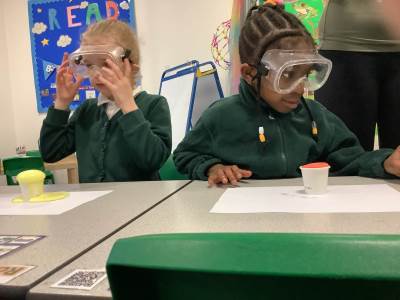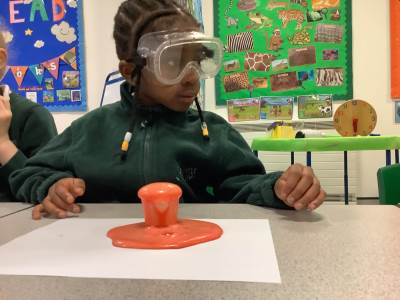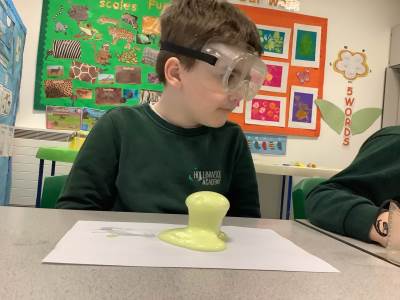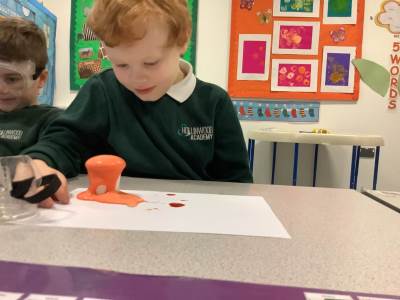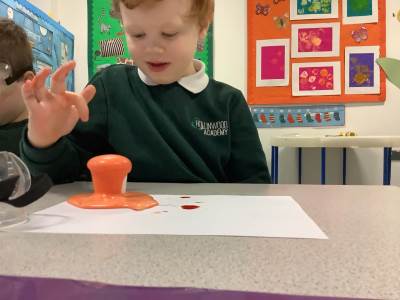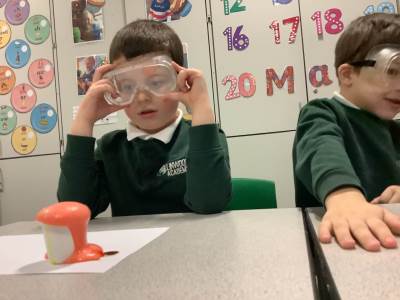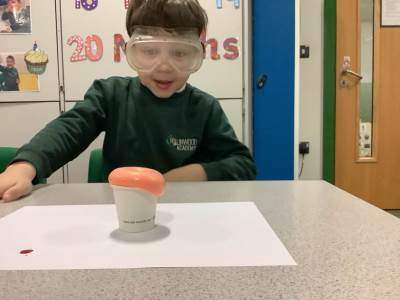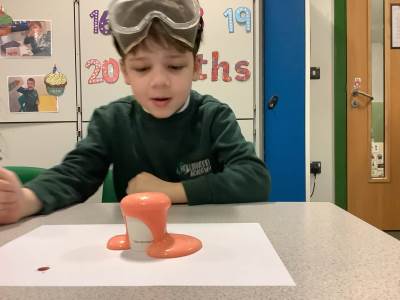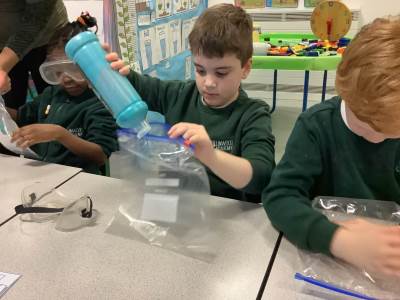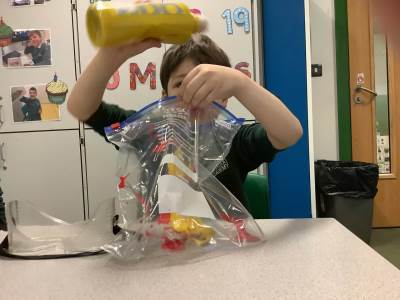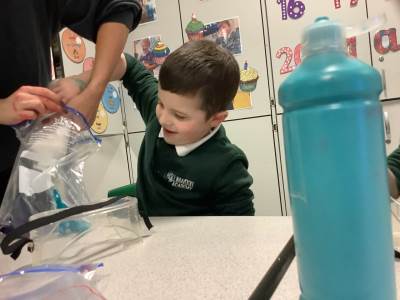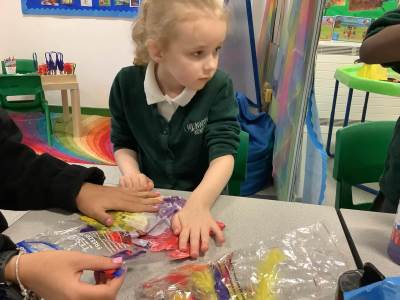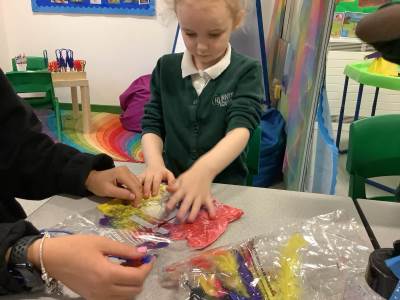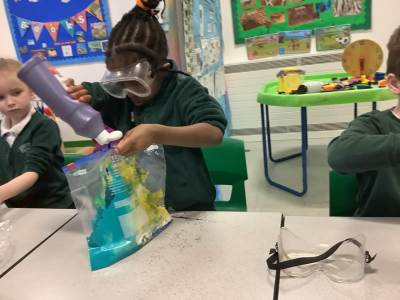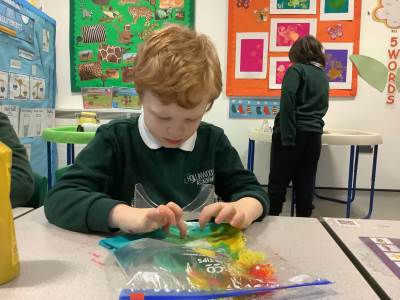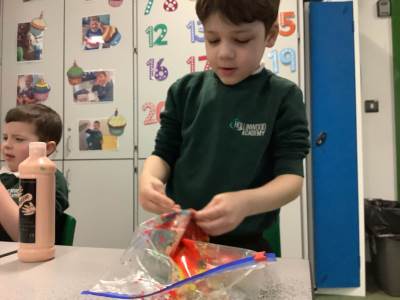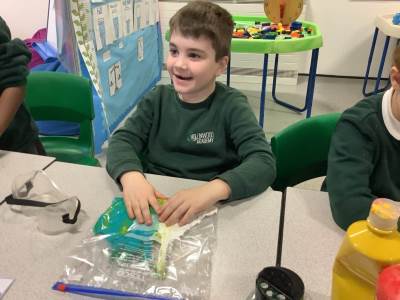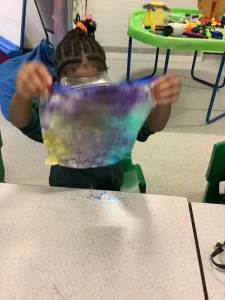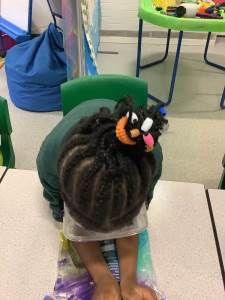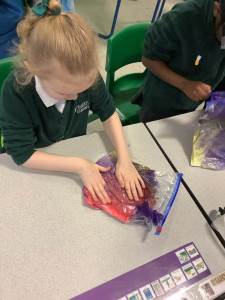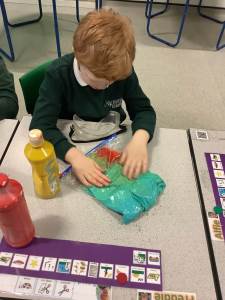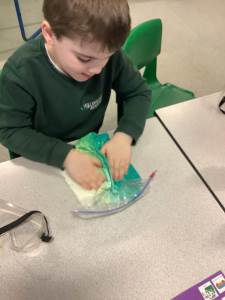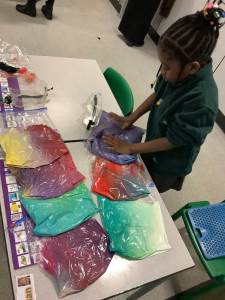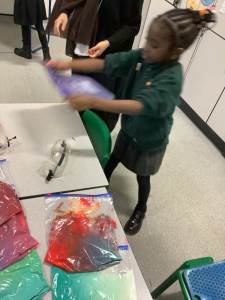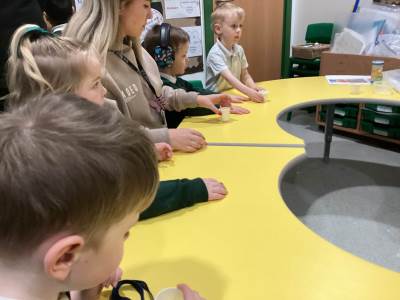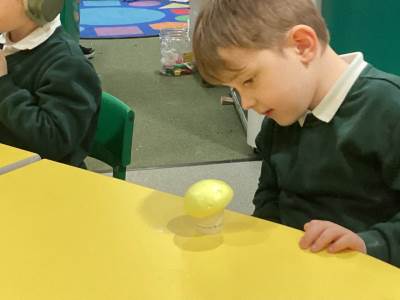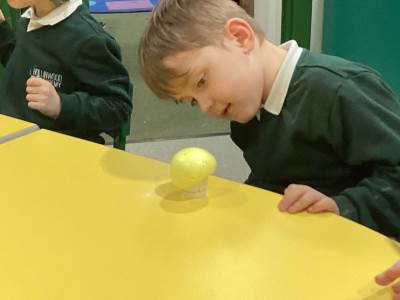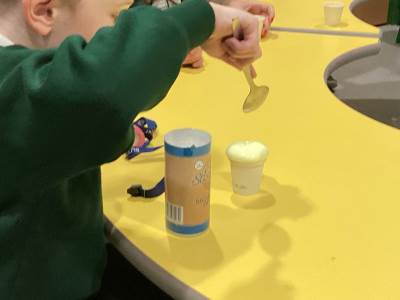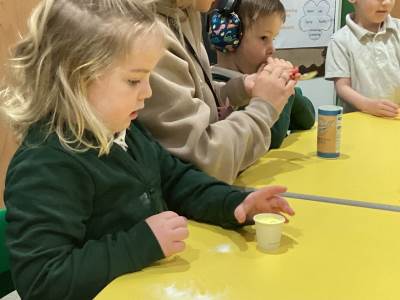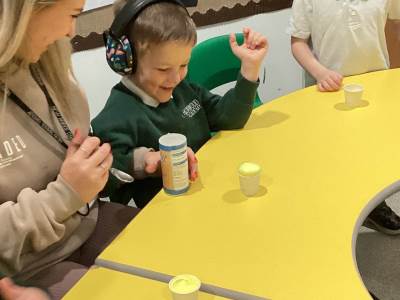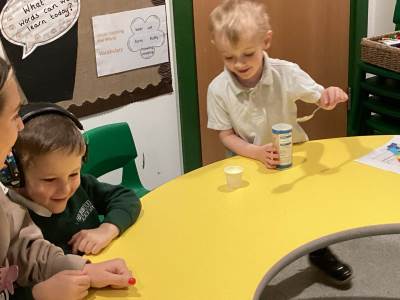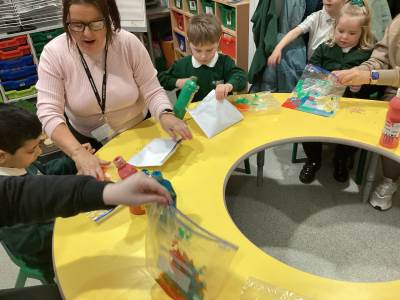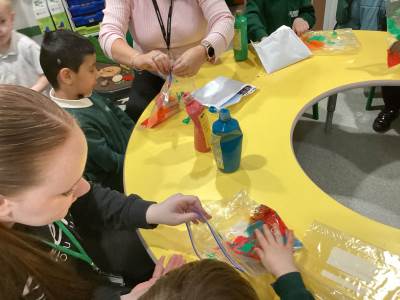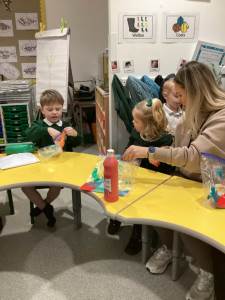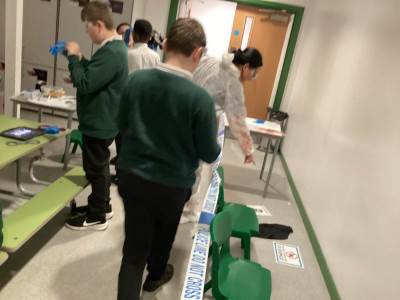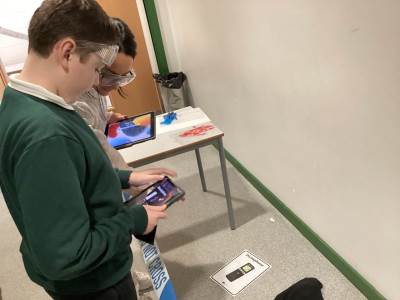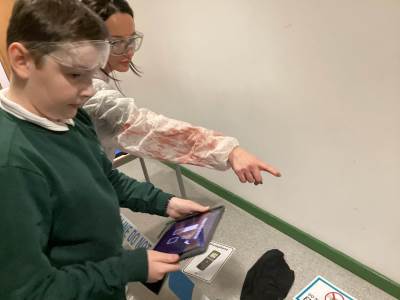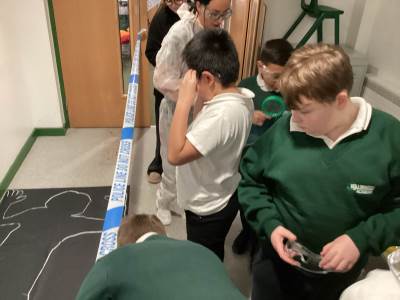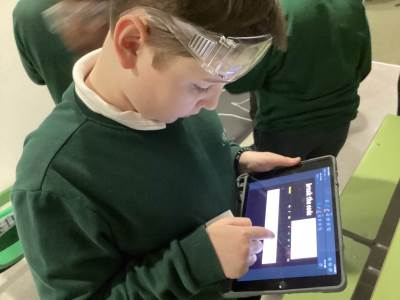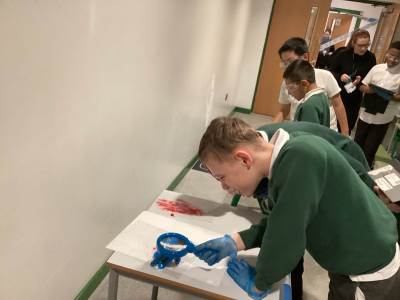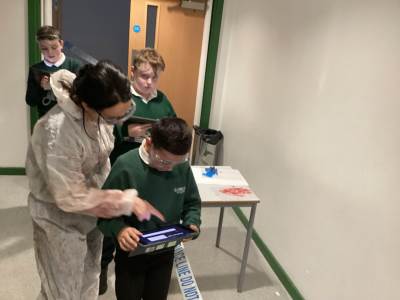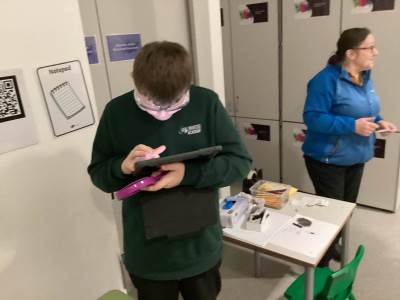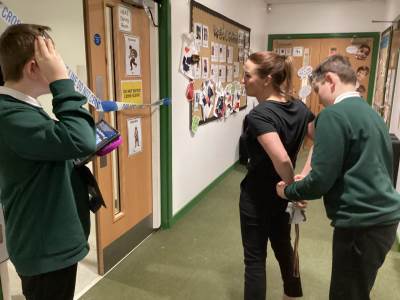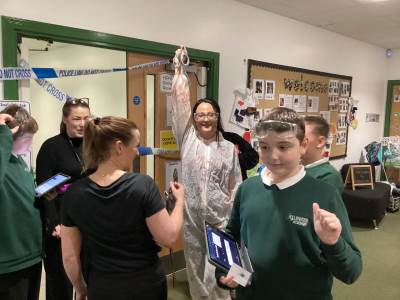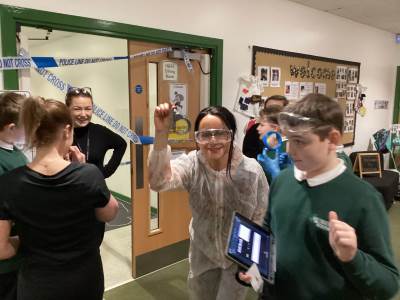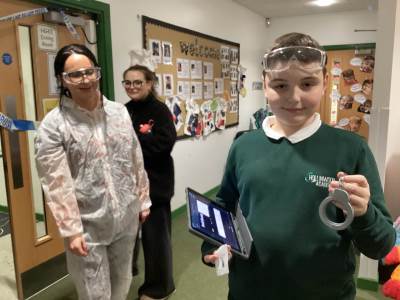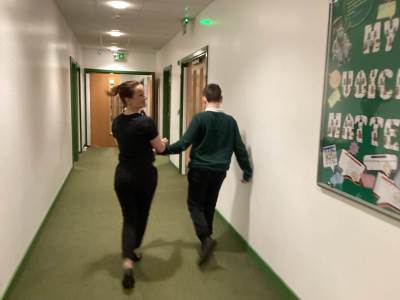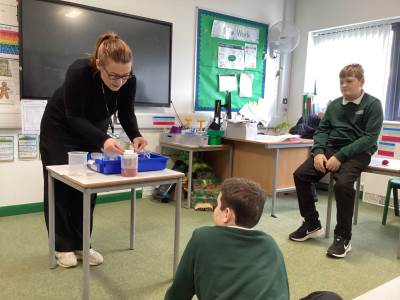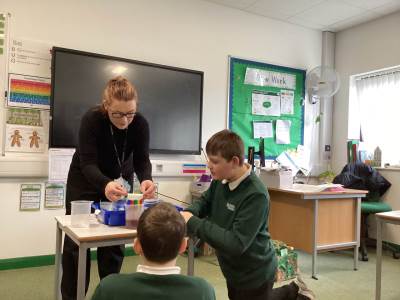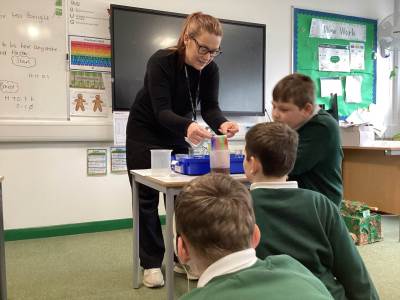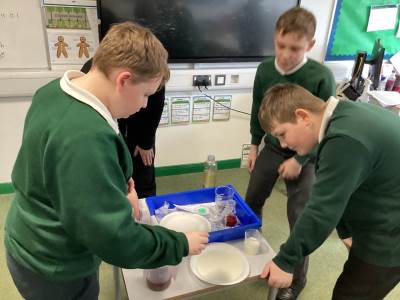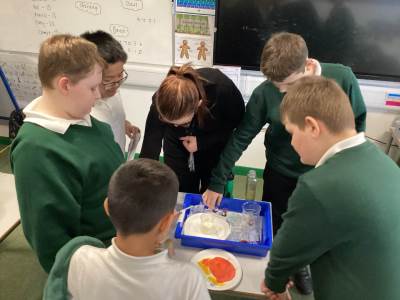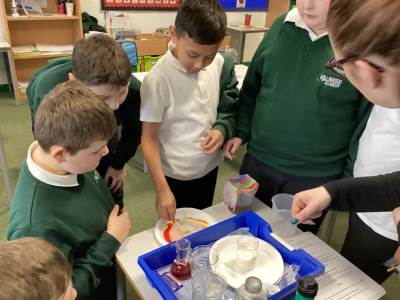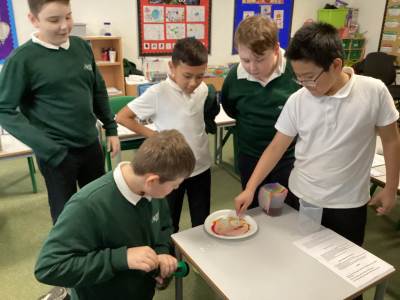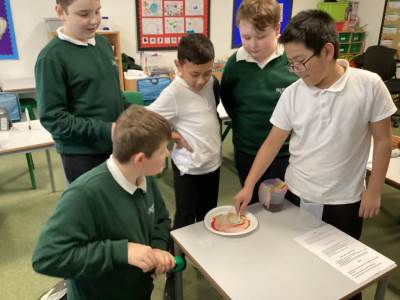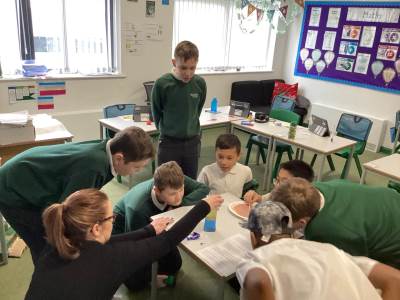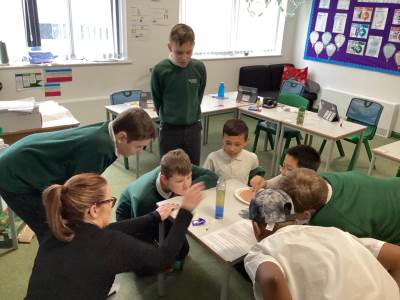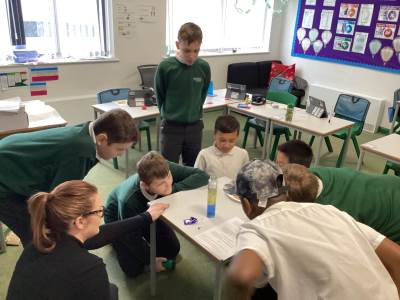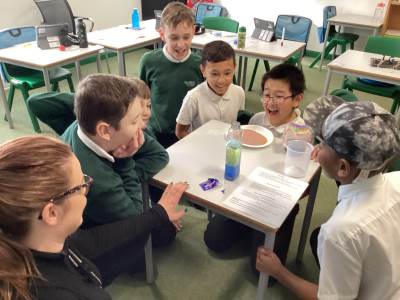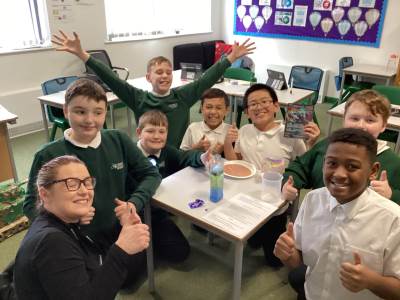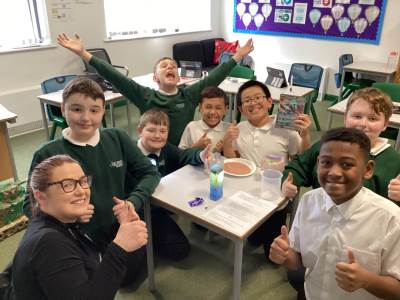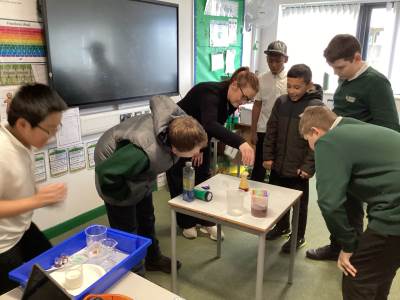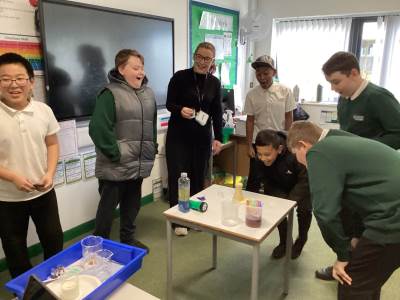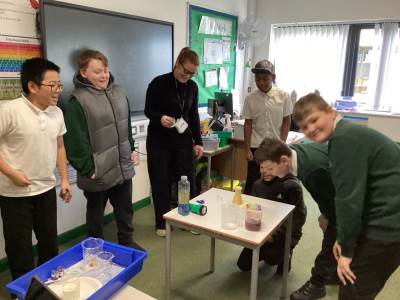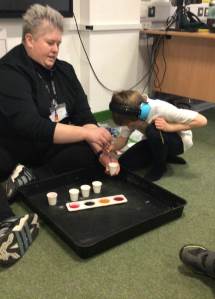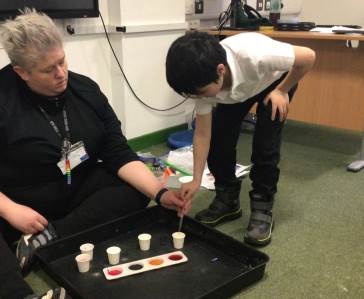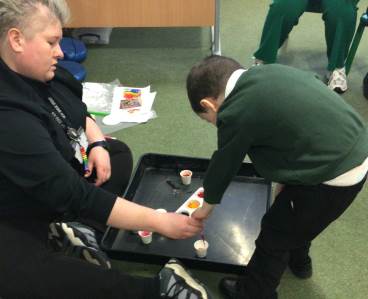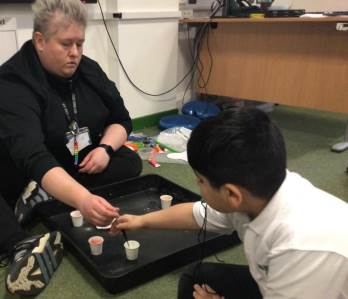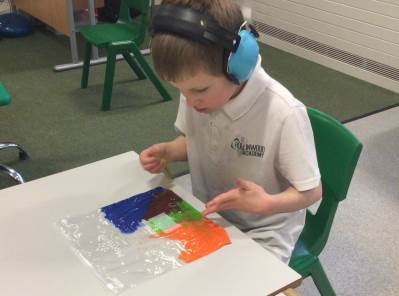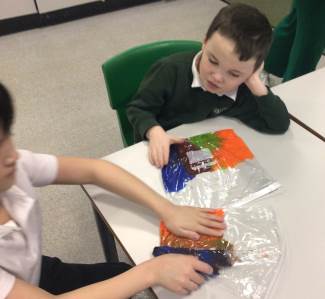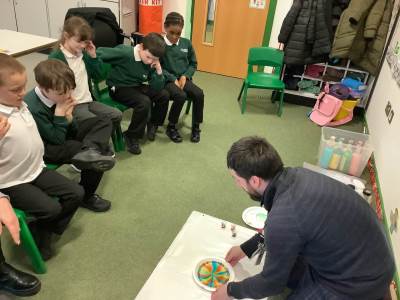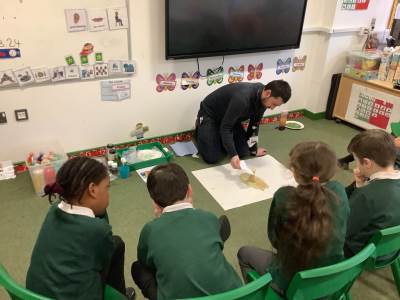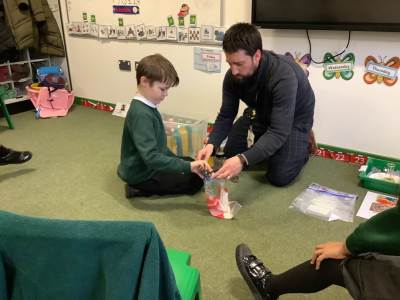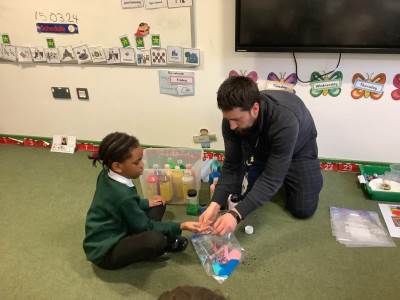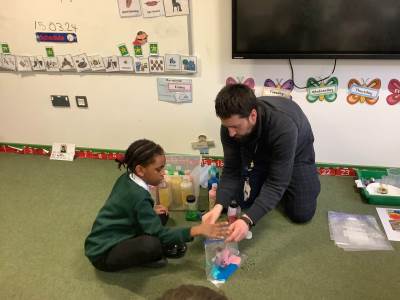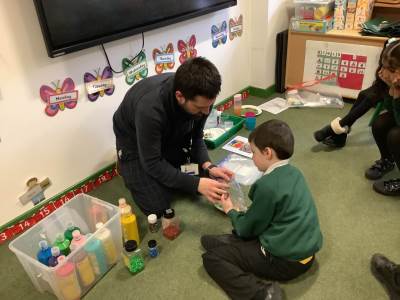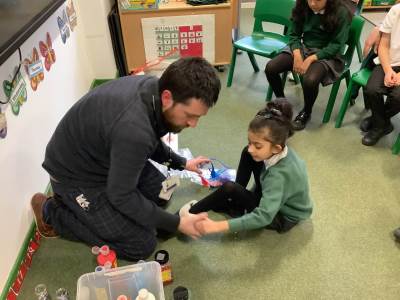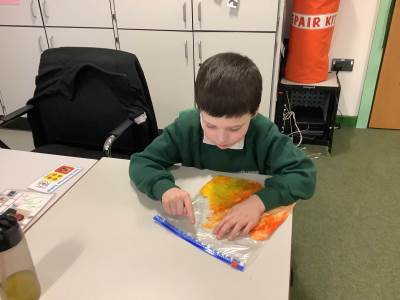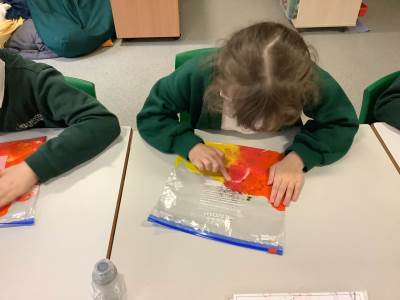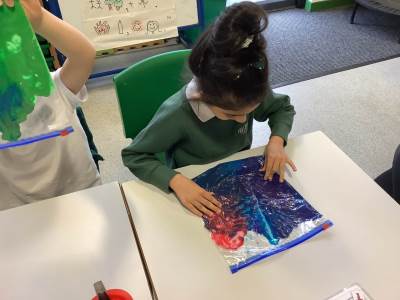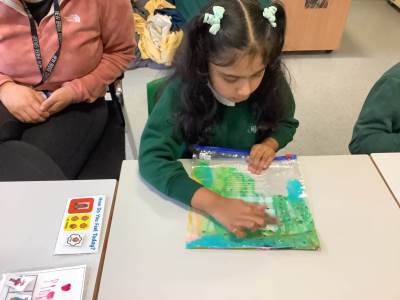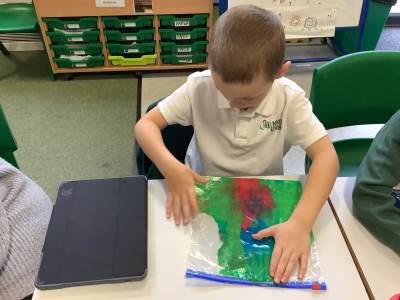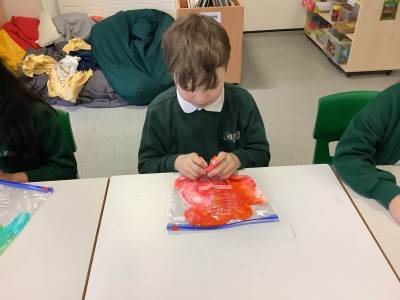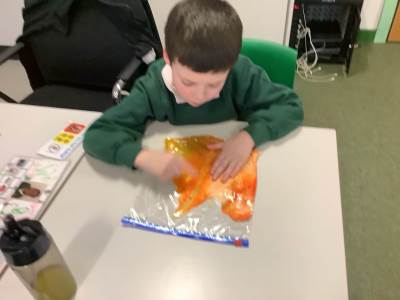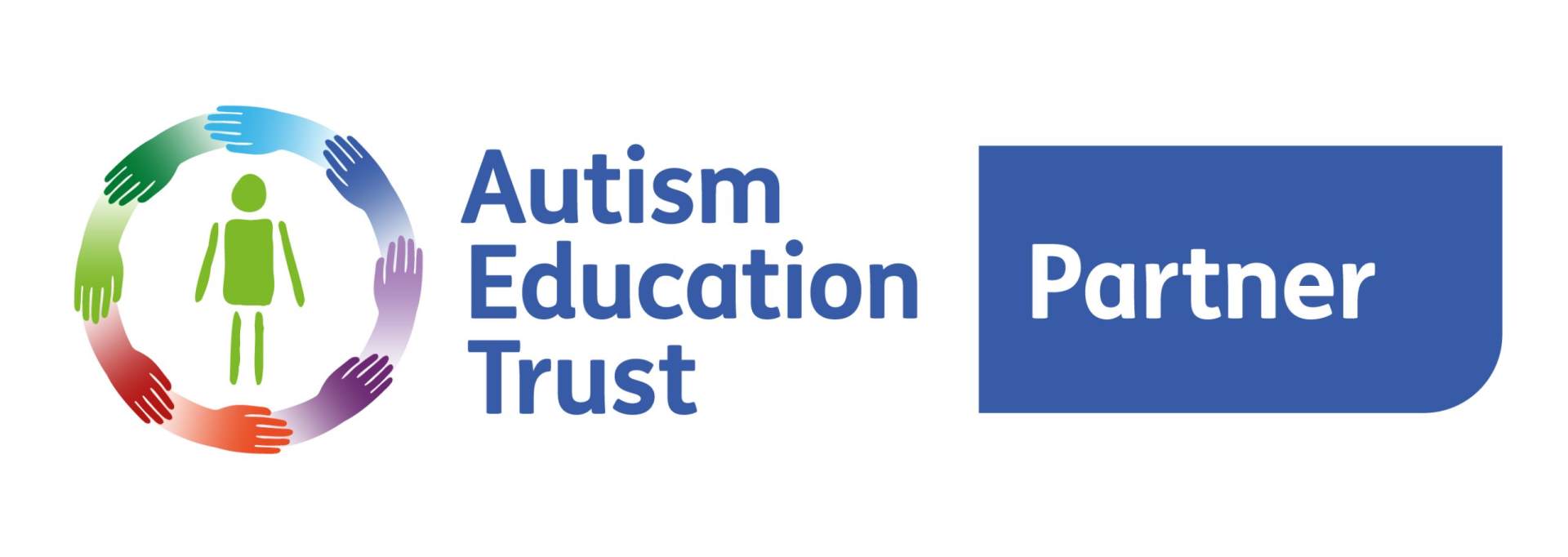Primary Science

The most beautiful experience we can have is the mysterious. It is the fundamental emotion that stands at the cradle of true art and true science.
- Albert Einstein
At Hollinwood Academy, we have an exciting and unique approach to teaching science in the Primary phase. We believe in providing our children and young people with hands-on experiences that are both meaningful and engaging. Our science lessons cover a wide range of subjects, including Physics, Chemistry, and Biology. However, our main focus is on developing learner's knowledge of scientific concepts and fostering their skills in working scientifically. We want to empower our children and young people to explore and investigate the world around them, nurturing a curiosity that will accompany them throughout their academic journey. Above all, we aim to foster a lifelong passion for learning and a deeper understanding of the world through nurturing a love for science at an early age. At Hollinwood Academy, science is not just a subject—it's an adventure!
Science lessons at Hollinwood Academy
At Hollinwood Academy, our science lessons are delivered with a focus on engaging our children and young people in active learning. The curriculum is designed to meet the requirements of the 2014 National Curriculum in England, providing our children and young people with a strong foundation in scientific knowledge and skills.
Throughout the academic year, our children and young people participate in two science lessons per week, allowing ample time for in-depth exploration of key scientific principles. Each lesson begins with a carefully crafted question, creating a meaningful context for our learning. This not only stimulates curiosity but also encourages critical thinking and problem-solving skills.
To ensure effective progression, we prioritise building strong prior knowledge of key words and concepts before moving our children and young people forward in the curriculum. By scaffolding their understanding, we enable them to make connections and deepen their comprehension of scientific ideas.
At Hollinwood Academy we utilise a variety of teaching strategies, including hands-on experiments, group discussions, and multimedia resources, to cater to different learning styles and abilities. We also emphasise the importance of practical work, enabling children and young people to develop vital practical skills and appreciate the scientific method.
Through our rigorous and engaging science curriculum, we aim to foster a lifelong love for science and equip our children and young people with the knowledge and skills necessary for future success. At Hollinwood Academy, we are committed to providing high-quality science education to empower our children and young people to become scientifically literate individuals.
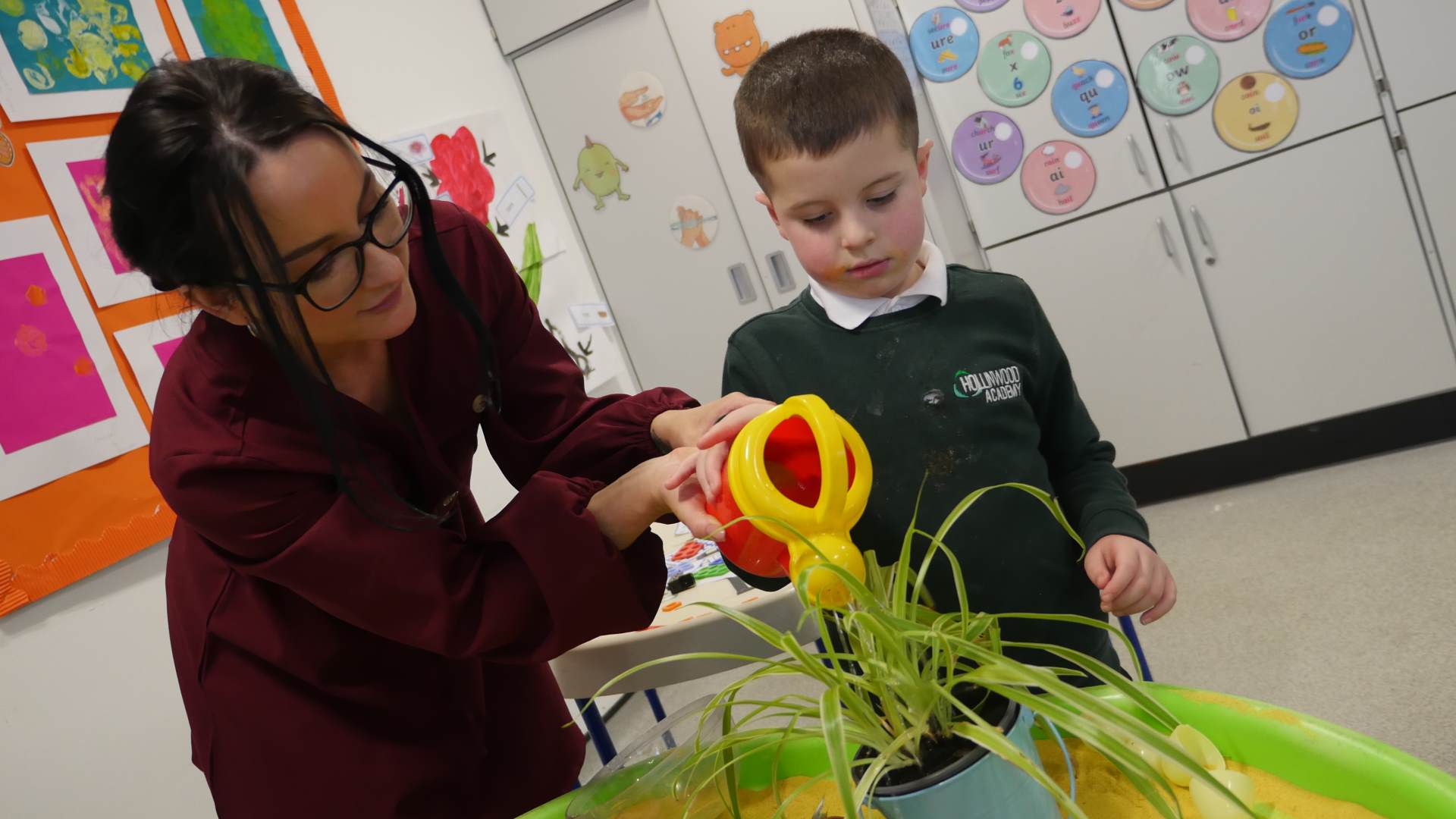
Schemes of Work
Teachers at Hollinwood Academy follow the White Rose Science scheme of work. This approach has been highly successful in providing lessons that use a "small steps" method to teach science. The scheme closely follows the National Curriculum for science in years 1 - 6, making it a one-stop solution for teachers to help children and young people develop scientific understanding and grasp scientific ideas. Through this method, children and young people can build and consolidate their knowledge and skills, as well as develop a positive attitude towards the world around us. Additionally, they have the chance to work scientifically. We believe that children and young people should be taught science in a way that helps nurture an understanding of the value of scientific skills. Children and young people learn about scientific questions related to sustainability and the planet, which helps them develop empathy towards the environment. Teachers have access to high-quality resources that support their delivery of the science curriculum.
At the heart of this curriculum lies the White Rose Science scientific enquiry process. This process aims to nurture children and young peoples' curiosity and equip them with the necessary skills to engage in scientific investigations effectively.
The primary scientific enquiry process begins with developing curiosity among students, encouraging them to explore the world around them and question how things work. From this curiosity arises the art of asking questions, where children learn to inquire about specific topics of interest. By selecting a particular question for investigation, children and young people are guided towards planning their investigation, which includes formulating a hypothesis and identifying the resources they need.
Upon planning, children and young people move on to the exciting stage of carrying out their investigation, where they collect data, make observations, and conduct experiments. Once the investigation is complete, they analyse the findings, drawing conclusions to answer their initial question. This evaluation process allows children and young people to refine their understanding of the topic further.
In summary, the primary scientific enquiry process involves developing curiosity, asking questions, choosing a question, planning an investigation, carrying out the investigation, looking at the findings, answering questions, and evaluating the investigation. By following this process, children and young people develop a solid foundation in scientific enquiry, fostering a love for science and critical thinking skills that will benefit them throughout their education and beyond.
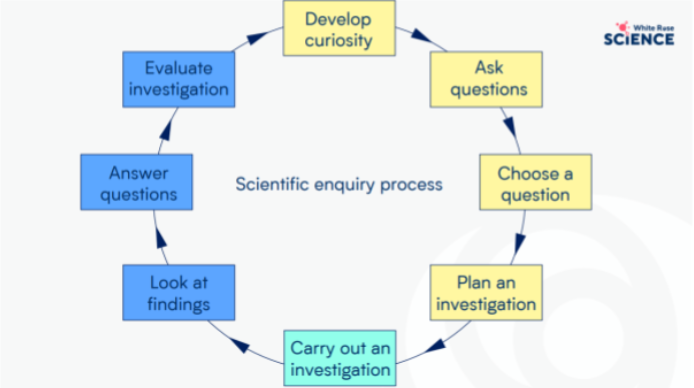
To learn more about the White Rose Scheme of Work and its implementation in our school, please visit Primary science curriculum and resources | White Rose Maths (whiteroseeducation.com)
Science Curriculum map.pdf
Communication Science Curriculum
In our communication groups, science is taught as a cross-curricular approach with a strong focus on communication. We carefully select suitable topics based on the curriculum stage of each child and young person, as well as the specific topic being covered. During our Attention Autism sessions, teachers introduce key scientific concepts and vocabulary to enhance engagement and learning.
Under the engagement model, we have found that 'Attention Autism' is a highly effective method to promote independence and facilitate overall development. By utilising these alternative approaches, we believe that all children and young people can achieve their full potential. Our dedicated and committed staff in these classes ensure that this becomes a reality.
The children and young people are taught a range of skills including engagement, responsiveness, exploration, perseverance, initiative, anticipation, and communication. By fostering these abilities, we aim to empower our students and instil a genuine love for learning.
Overall, our Science Curriculum adopts a holistic approach to science education, integrating communication skills and alternative teaching methods to create an enriching and inclusive learning environment.
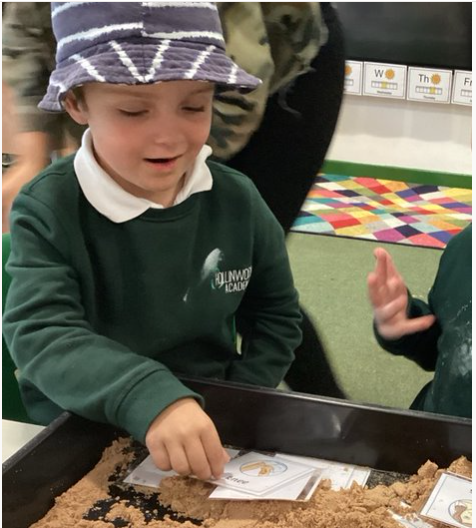
Curriculum Adaptations and Pedagogy
The curriculum adaptations and pedagogy at Hollinwood Academy is centered around meeting the unique needs and abilities of every learner, ensuring equal opportunities for academic, personal, and social development. The primary goals include:
1. Inclusivity: Adapt the curriculum to ensure that all learners have access to quality education, regardless of their individual needs.
2. Adaptive Teaching: Provide personalised learning experiences that cater to the diverse abilities, interests, and learning styles of the children and young people.
3. Progression: Foster a holistic and sequential approach to learning, allowing children and young people to build on their prior knowledge, skills, and understanding from their identified starting points.
4. Empowerment: Develop independent learners who are equipped with the skills, resilience, and self-confidence required to succeed academically and, in their future lives.
Curriculum Adaptations and Pedagogy
Assessment
At Hollinwood Academy, we employ a comprehensive approach to assessing every child and young person’s progress in science. Our assessments are designed to align with the 2014 National Curriculum in England and are based on the White Rose schemes of work. Science lessons at Hollinwood Academy are a chance for children to discuss, question and investigate. Evidence of this is captured on Evidence for Learning during each session by the child or teacher. Children are assessed regarding working scientifically using the assessments Worksheets from White Rose Science. These support teachers with their final judgement which will be inputted on to Evidence for Learning. Children are assessed in: Physics, Chemistry, Biology and working scientifically.
For children and young people who are working below the National Curriculum standards, we employ pre-key stage standards to assess their performance. Additionally, children and young people who are working even below pre-key stage standards are assessed using the Engagement model of learning, which takes into account their individual learning needs.
To provide individualised support, each child and young person has bespoke and personalised science progress targets, which we track closely. We believe in fostering a strong partnership with parents, and hence, share these targets with them on a termly basis via Arbor, our digital communication platform.
By adopting this rigorous and tailored approach to science assessments, we strive to ensure that all our children and young people in formal develop a solid foundation in science and achieve their full potential.
Sustainability Curriculum within Primary Science
At Hollinwood Academy, sustainability and climate change are embedded in the primary science curriculum, each class covering these topics twice a year through sustainability blocks. These blocks provide real-world context, helping children understand issues and their role in creating sustainable future.
Year Group Topics:
Year 1: Caring for the Planet; Growing and Cooking
Year 2: Plastic; Wildlife
Year 3: Food Waste; Biodiversity
Year 4: Energy; Deforestation
Year 5: Global Warming; Plastic Pollution
Year 6: Renewable Energy; Light Pollution
Whole-school assemblies led by the primary science lead further reinforce these themes:
25th Nov 2024: National Tree Week
24th Mar 2025: Earth Hour
23rd Jun 2025: Rainforest Day
Bringing science to Life through Outdoor Education
At Hollinwood Academy we believe that learning doesn’t just happen inside the classroom — it thrives in the great outdoors. That’s why we actively link our science curriculum to Outdoor Education (OE), using the natural environment as a living classroom to deepen understanding, ignite curiosity, and develop practical skills.
Each year group enhances their scientific knowledge and skills through hands-on outdoor experiences, carefully aligned with their learning targets, for example:
Year 1 – Plants & Seasons
Children explore the parts of a plant by digging up real specimens, using magnifying glasses to observe roots, stems, and leaves. They also explore seasonal changes and discuss how plants fit into our everyday lives and jobs like gardening.
Year 2 – Living Things and Their Habitats
Pupils investigate local minibeasts and plants, observing where they live and what makes their habitats special. Through guided questions, they learn to classify animals and understand basic biological characteristics.
Year 3 – Light
On sunny days, students create shadow art using natural materials. They observe how shadows form and change, leading to discussions about light sources and how objects block light to cast shadows.
Year 4 – Sound
Children discover how sound travels by playing instruments outdoors and measuring how distance affects volume.
Year 5 – Properties of Materials
Pupils investigate natural materials found outdoors, exploring properties such as hardness, flexibility, and texture. They test materials like leaves, bark, and grass to find out which are bendy, waterproof, rough, or smooth.
By taking science outside, we help children develop scientific thinking in a real-world context. These sessions enrich our curriculum, build confidence, and make science exciting, practical, and fun!
Science in Outdoor Education
Wider Curriculum & Celebrations
Science Week 2025
british science week poster 2025.pdf
Science Week Spring 20204
Science Week at Hollinwood Academy was a week filled with excitement and discovery. The theme this year was ‘Time’, and it was introduced during the assembly at the start of the week. This captivating assembly revolved around various aspects of time, encouraging children and young people to ponder questions related to clocks, seasons, life cycles of frogs, and much more.
Throughout the week, primary students engaged in a wide array of activities, culminating in a thrilling finale on Friday. The activities included:
1. M&M - Rainbow Science Experiment
2. Lava Lamp
3. Exploding Volcano
4. Milk and food colouring.
5. Paper towel rainbow
6. Sensory Bags
7. Crime Investigation
The crime scene investigation involved our very own Miss Gordon found herself under arrest!
This memorable Science Week was made possible thanks to the incredible efforts of Miss Natalia and Miss Angela, our science technician. Their commitment to creating an engaging and enjoyable experience for all was evident in the success of the week.
Overall, Science Week was a resounding success, fostering curiosity and a love for the subject among our children and young people. Next week, secondary young people will start their science week.
CSI Investigation Science week
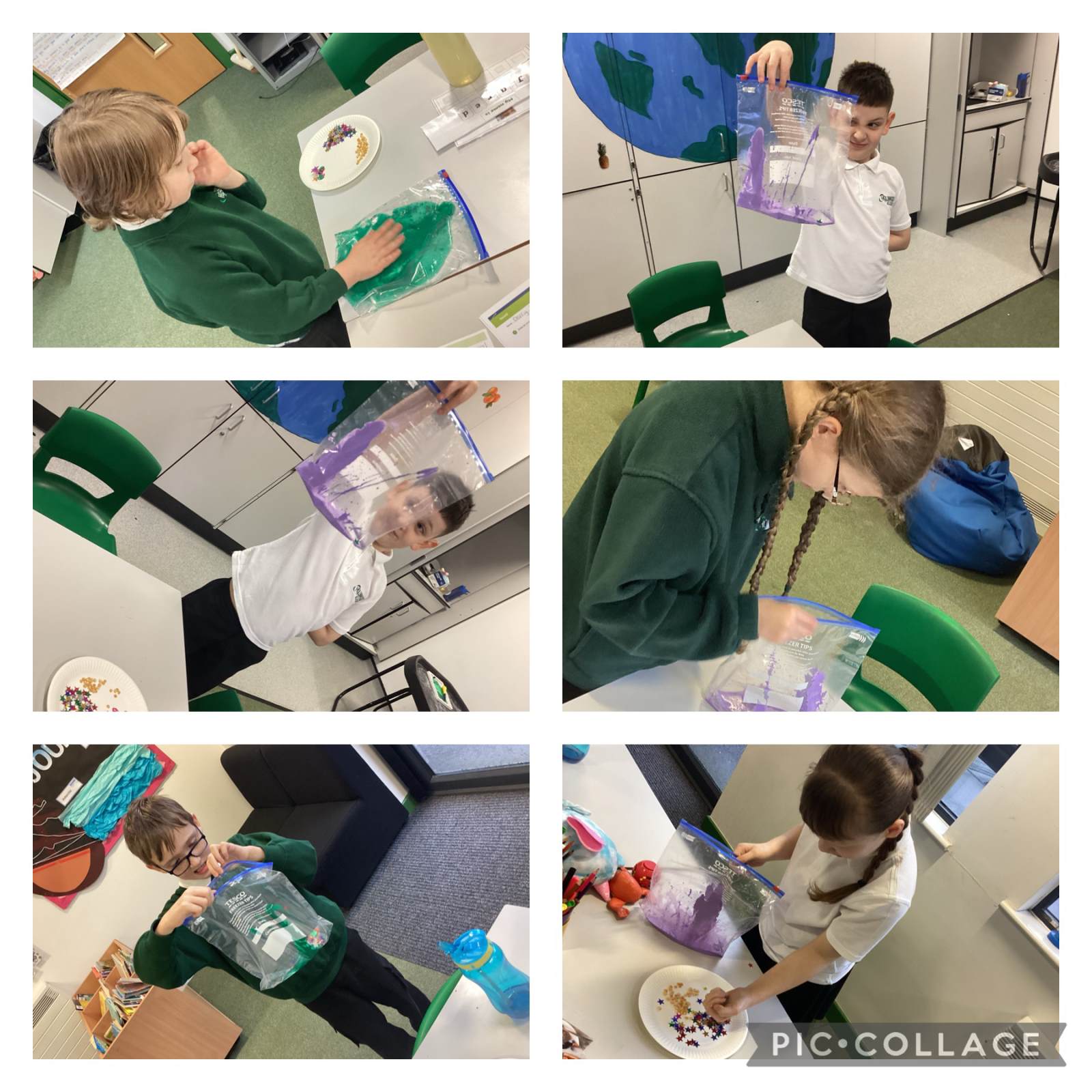
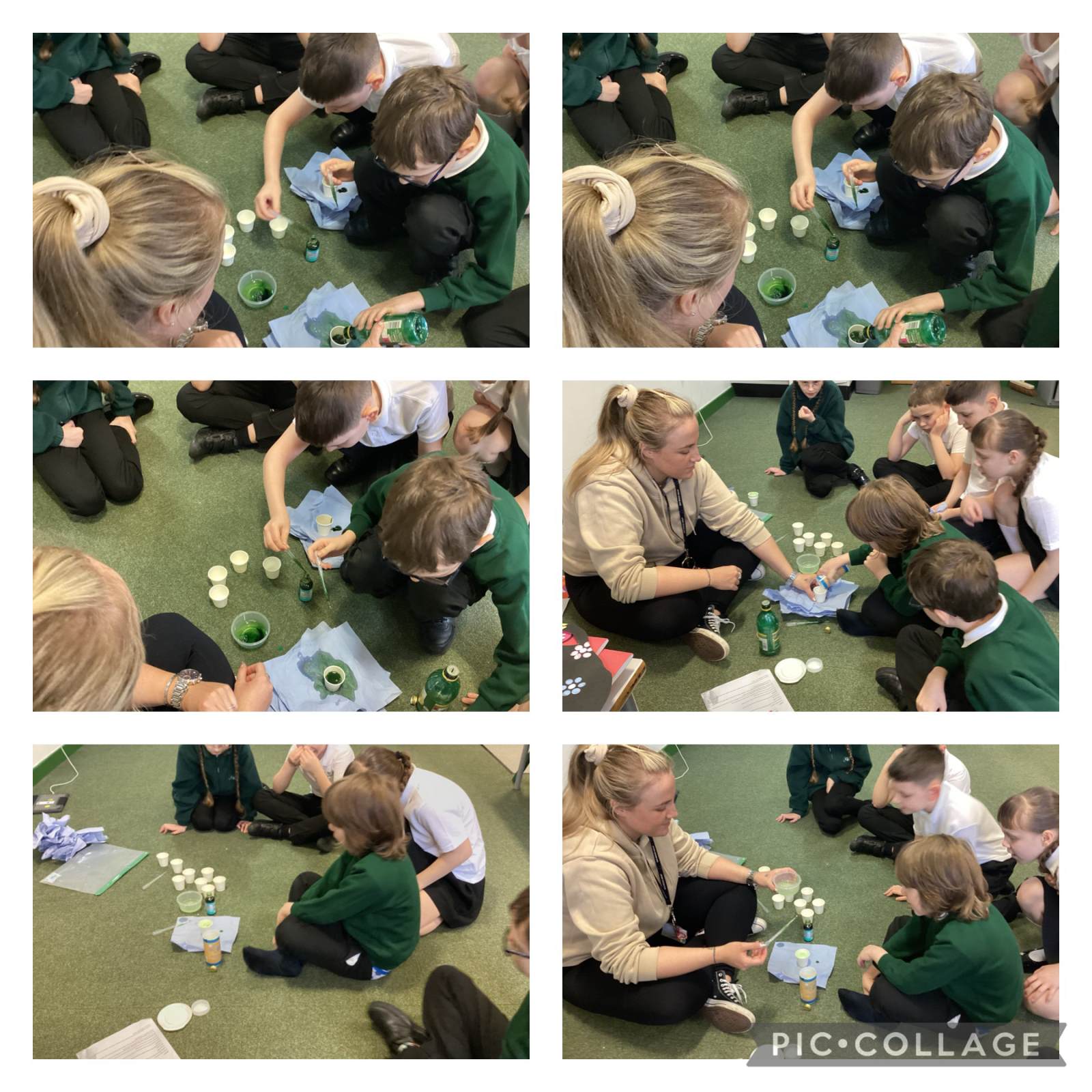
NPA - Science
ELO - Science
HMS - Science
RBA - Science
MCN Science Week
Science Week Spring 2023: Science Week 2023
Technology & Websites
We firmly believe in the power of technology to enhance learning, and we have made it an integral part of our science curriculum. At the primary stage, we embrace the use of iPads and other technological tools, enabling all children and young people to engage actively with their learning. By utilising these resources, we aim to remove barriers and make science accessible for every child and young person.
All children and young people have access to a wide range of interactive science and learning apps, including:
KS1 Science - BBC Bitesize
NASA Kids' Club spaceplace.nasa
sheppardsoftware.com/science.htm
bbc.co.uk/teach/terrific-scientific
To further consolidate learning, we also incorporate various interactive science games into our lessons. These games provide children and young people with opportunities to apply their scientific knowledge and skills in a stimulating and enjoyable way. By making use of technology in such a manner, we not only enhance understanding but also instil a love for science in our children and young people. At Hollinwood Academy, we firmly believe that by embracing technology, we can empower our children and young people to overcome challenges and reach their full potential in science and beyond.
